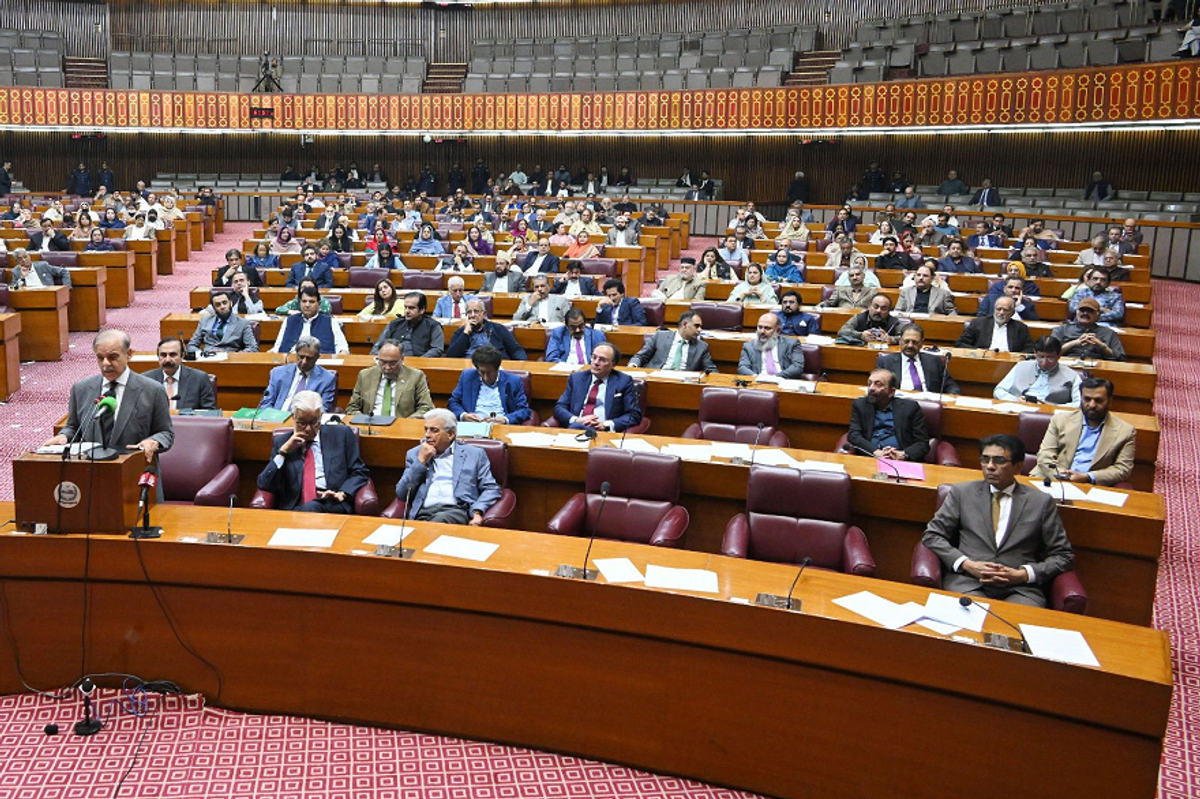Pakistan approves defense and judicial laws to implement 27th Constitutional Amendment
New changes create Chief of Defense Forces as unified military commander, replacing CJCSC post upon incumbent’s retirement

Aamir Abbasi
Editor, Islamabad
Aamir; a journalist with 15 years of experience, working in Newspaper, TV and Digital Media. Worked in Field, covered Big Legal Constitutional and Political Events in Pakistan since 2009 with Pakistan’s Top Media Organizations. Graduate of Quaid I Azam University Islamabad.

A view of Pakistan’s National Assembly during the November 12 session.
NA page/Facebook
Pakistan’s National Assembly has approved a series of key legislative changes to align defense and judicial laws with the recently passed 27th Constitutional Amendment, a sweeping reform aimed at restructuring the country’s military and constitutional framework.
The decisions, announced following a meeting chaired by Prime Minister Shehbaz Sharif at Parliament House in Islamabad, mark a significant step in implementing the amendment’s provisions and modernizing institutional structures.
Earlier, the federal cabinet had sanctioned amendments to the Pakistan Army Act, Pakistan Air Force Act, and Pakistan Navy Act to bring the armed forces’ legal framework in line with Article 243 of the Constitution, which governs military command and control. These amendments have now also been formally approved by the National Assembly.
Under the new framework, the amendments establish the position of Chief of Defense Forces (CDF), who will serve as the unified commander of the army, navy, and air force.
Officials confirmed that the post of Chairman Joint Chiefs of Staff Committee (CJCSC), currently the top inter-services coordination office, will be abolished once the incumbent retires. This change reflects Pakistan’s transition toward a consolidated military command structure under the CDF.
In addition, the amendments introduce honorary, high-ranking titles - Field Marshal, Marshal of the Air Force, and Admiral of the Fleet - within the respective service laws.
Cabinet members were briefed that these changes are designed to meet contemporary strategic requirements and ensure Pakistan’s defense framework remains responsive to evolving security challenges.
The Federal Cabinet also approved the draft of the Federal Constitutional Court (Procedure and Practice) Act, 2025, which will regulate the functioning of the newly established Federal Constitutional Court. Envisioned under the 27th Amendment, this court will handle constitutional disputes and safeguard the separation of powers between state institutions.
Separately, the cabinet ratified the decisions of the Economic Coordination Committee (ECC) from its November 7, 2025 meeting, reaffirming the government’s commitment to continuity and transparency in economic policymaking.
Key features of 27th Constitutional Amendment
The 27th Constitutional Amendment, passed by Pakistan’s Parliament and assented to by the President, introduces a landmark restructuring of the country’s constitutional and institutional framework. Key provisions include:
- Creation of a Federal Constitutional Court, separate from the Supreme Court, to exclusively handle constitutional interpretation and disputes between the federation and provinces.
- Amendments to Article 243, establishing the Chief of Defense Forces (CDF) as the principal military adviser to the Prime Minister and the Federal Cabinet.
- Rationalization of defense-related laws to align with the new unified military command structure.
The government says these reforms aim to modernize the civil-military framework, clarify institutional jurisdictions, and strengthen democratic oversight of the armed forces.







Comments
See what people are discussing